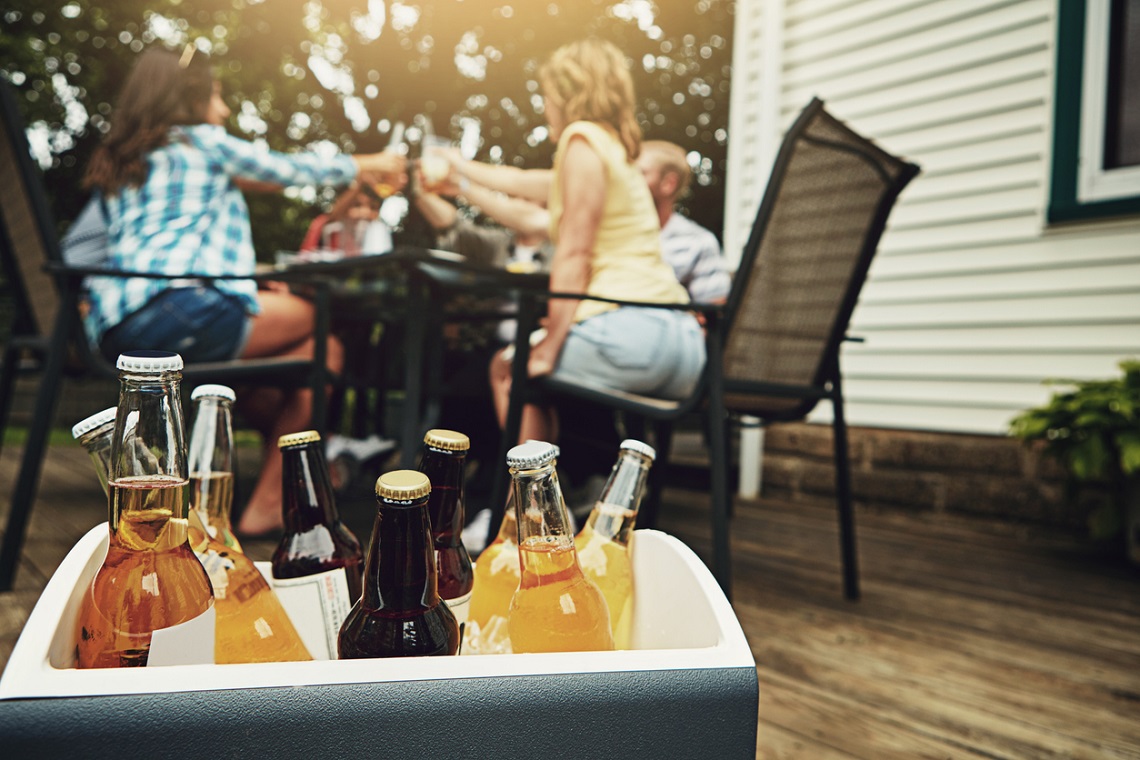It was back in March that Australia’s Federal Government introduced the first lockdown restrictions as part of its plans to restrict the spread of COVID-19 in Australia, and now the impact of the ongoing pandemic on the global alcohol market is coming into focus.
Different organisations and analysts are continually assessing the impact of COVID-19 on both global and domestic markets, including IWSR, who says it has identified six key macro trends that are driving and shaping the industry. In addition IWSR, which was founded 50 years ago and considered a leading source of data, analysis and insights on the global beverage alcohol market, has released a ‘snippet’ assessing the impact of the pandemic in Australia.
That snippet says: “Although there has been some improvement in the on-trade occupancy, it continues to drag category performance down, notably spirits, where over 35 per cent of annual sales normally occur in the channel, and especially now with central hub Melbourne in renewed lockdown.”
It adds: “Wine is benefiting due to the lesser impact of the country’s winter season and is less exposed to social drinking as well as its natural strength in the ecommerce channel.”
In identifying the marco trends shaping the industry, the IWSR listed:
- Digital and Ecommerce
- Sophistication and Premiumisation
- Evolving Traditions
- External Pressures
- Health and Ethical Consumption
- Social Drinking Experiences
The organisation broke down further three of these trends saying that Sophistication and Premiumisation is “the search for authenticity and status, enabled by consumer knowledge and spending power”.
IWSR said: “Premium-and-above spirits are forecast to increase their global volume market share to 13 per cent by 2024 as consumers continue to favour quality over quantity, including cocktails and high-end sipping spirits.”
Premiumisation has been a key trend in Australia for many years as consumers spend more but drink less and IWSR said in terms of forecasting ahead to 2024 “the premiumisation trend continues to influence market developments”.
Evolving Traditions means “generational shifts in consumer behaviour encouraged by globalisation or emerging as a reaction against it”.
In particular IWSR forecasts “local products and experiences – accelerated by travel restrictions and closed borders during the pandemic – will continue to gain popularity as consumers rally behind symbolic and job-sustaining producers.
The trend also means “adapting to bar and restaurant outdoor dining restrictions and closures has forced consumers – especially among younger LDA generations – to form new drinking habits that will likely persist into the future, with portable/convenient beverages such as canned wine and RTDs well-poised for this.”
Looking ahead IWSR said: “Spirits categories that are expected to continue to ride the globalisation trend include premium-and-above tequila (which has grown 15 per cent year-on-year between 2015-2019), and spirit aperitifs (which after the Covid-19 slump, due to on-trade closures, should return to healthy growth by 2021, with volumes increasing by almost 16 per cent from 2019 levels).”
Finally Health and Ethical Consumption is a trend that was coming on strongly in Australia prior to the pandemic and IWSR expects the increased focus on personal health and wellbeing, as well as impact choices on the environment and society at large will continue.
Digging into the trend IWSR said: “Health-conscious drinkers generally adopt a policy of moderation, cutting back in volume or reducing occasions. These consumers are likely to trade up to a higher-quality drink or one they perceive as healthier when they do choose to drink. Regular drinking occasions are also changing, thanks to the growing profile of better low- and no-alcohol alternatives.”
It added: “In the top countries for low- and no-alcohol products, no-alcohol beer is set to grow its share of the beer category to 4.45 per cent by 2024, as sober and moderating consumers embrace newly improved products across a wide range of occasions.”
Looking ahead at this trend, IWSR said: “The top organic wine markets as of 2019 are Germany, France, the UK, the US, Sweden and Japan. Here and elsewhere, broad consumer-and state-led shifts toward health and/or sustainability are likely to continue in the wake of the Covid-19 pandemic.
“This will have implications for the whole beverage alcohol industry, from production and packaging to distribution and administration.”
Overall IWSR is projecting confidence in the long-term, saying that despite the current unpredictability and the economic outlook of the ongoing pandemic, the beverage alcohol market is showing “real pockets of resilience”.
“Consumption patterns have certainly changed, but the outlook for the industry is one of hope and resilience,” IWSR said.

